THCA Dosage Guide for Athletes: How Much is Safe and Effective?
Athletes are increasingly exploring natural alternatives to traditional recovery and performance enhancement methods, and THCA (tetrahydrocannabinolic acid) has emerged as a promising option. However, one of the most common questions athletes have about THCA is dosage. Unlike many supplements with established guidelines, THCA dosage athletes requires a personalized approach based on individual factors and goals.
Understanding proper dosing is crucial for maximizing benefits while maintaining safety and compliance with athletic regulations. This comprehensive guide will help you navigate the complexities of THCA dosing, providing evidence-based recommendations for athletes at every level.
Understanding THCA Dosage Basics
Before diving into specific dosing recommendations, it's essential to understand why THCA dosing guide protocols differ significantly from other cannabinoids and supplements. THCA presents unique challenges and opportunities that directly impact how athletes should approach dosing.
Variable Bioavailability
Unlike standardized pharmaceutical medications, THCA bioavailability can vary dramatically based on several factors. The method of consumption, individual metabolism, and even the time of day can significantly impact how much THCA actually enters your system. This variability means that what works for one athlete may not be optimal for another, even if they share similar body composition and training regimens.
Individual Endocannabinoid System Differences
Every athlete's endocannabinoid system (ECS) is unique, functioning like a biological fingerprint. Some individuals have naturally more sensitive cannabinoid receptors, while others may have genetic variations that affect how they process cannabinoids. These differences can result in dramatically different responses to the same dose, making personalized approaches essential.
Product Concentration Variations
Not all THCA products are created equal. Concentration can vary significantly between brands, extraction methods, and even batches from the same manufacturer. This variation underscores the importance of choosing high-quality, consistently tested products and understanding exactly what you're consuming.
Method of Consumption Impacts
The way you consume THCA dramatically affects both the onset time and duration of effects. Sublingual tinctures may take effect within 15-45 minutes, while capsules might take 1-2 hours but provide longer-lasting benefits. Understanding these timing differences is crucial for athletic applications where precise timing can make or break a training session or competition.
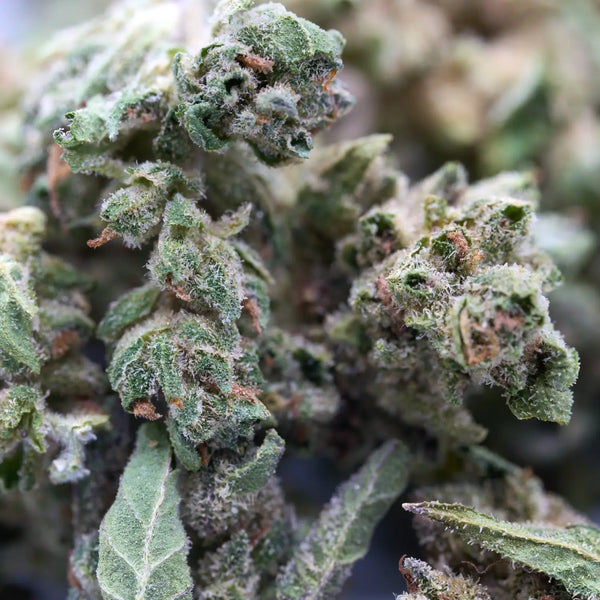
General Dosage Ranges for Athletes
When determining how much THCA athletes should take, it's helpful to categorize users based on their experience level and individual tolerance. These ranges provide starting points that can be adjusted based on individual response and specific athletic goals.
Beginner Athletes (New to Cannabinoids)
For athletes new to cannabinoids, the golden rule is "start low and go slow." The beginner THCA dose should be conservative to allow your body to adjust gradually.
Starting Dose: 2.5-5mg daily
- Begin with the lowest possible dose
- Take at the same time each day for consistency
- Monitor effects in a training log
Adjustment Period: 2-3 weeks
- Allow sufficient time to assess effects
- Make small adjustments (1-2mg) if needed
- Patience is crucial during this phase
Maximum Initial: 10mg daily
- Avoid exceeding this amount in the first month
- Higher doses don't necessarily mean better results
- Focus on finding your minimum effective dose
Intermediate Users
Athletes who have established tolerance and understand their body's response to cannabinoids can work within a broader range. THCA dose recommendations for intermediate users allow for more flexibility while maintaining safety protocols.
Typical Range: 10-25mg daily
- Adjust based on training intensity and recovery needs
- Consider splitting doses throughout the day
- Monitor for any changes in performance or recovery
Split Dosing: 2-3 times per day
- Morning dose: 5-10mg for baseline support
- Pre-workout: 2.5-5mg for performance enhancement
- Post-workout: 5-15mg for recovery optimization
Performance Timing: Based on training schedule
- Align dosing with high-intensity training days
- Consider lower doses on rest days
- Adjust for competition schedules and testing protocols
Advanced/Heavy Users
Experienced athletes who have been using cannabinoids long-term may require higher doses, but this doesn't mean abandoning caution. Safe THCA dosage practices become even more critical at higher dose ranges.
Higher Ranges: 25-50mg daily
- Only appropriate for experienced users
- Requires careful monitoring and professional guidance
- Consider tolerance breaks to maintain effectiveness
Specialized Protocols: Event-specific dosing
- Adjust dosing based on competition schedules
- Create specific protocols for different types of events
- Have contingency plans for unexpected schedule changes
Professional Monitoring: Regular health checks
- Work with healthcare providers familiar with cannabinoids
- Regular blood work to monitor any systemic effects
- Psychological assessments to ensure optimal mental health
Factors Affecting Optimal Dosage
Determining the right THCA dosing athletes protocol requires consideration of multiple individual factors that can significantly impact both effectiveness and safety.
Body Weight and Composition
Physical characteristics play a substantial role in determining optimal dosing strategies. Larger athletes often require higher doses to achieve the same effects as smaller individuals, but the relationship isn't purely linear.
Larger Athletes May Require Higher Doses
- General rule: 0.1-0.3mg per pound of body weight
- Adjust based on individual response rather than strict weight calculations
- Consider total body mass, not just weight
Body Fat Percentage Affects Absorption
- Higher body fat can increase cannabinoid retention
- May lead to longer-lasting effects but slower onset
- Athletes with lower body fat may need more frequent dosing
Muscle Mass Influences Distribution
- Higher muscle mass may require adjusted dosing strategies
- Muscle tissue contains cannabinoid receptors
- Recovery-focused protocols may be more effective in muscular athletes
Training Intensity and Volume
The demands you place on your body directly impact your optimal THCA dose requirements. High-intensity training creates different physiological stresses that may benefit from adjusted dosing protocols.
Higher Intensity = Potentially Higher Doses Needed
- Increased inflammation from intense training
- Greater recovery demands
- Elevated stress hormone levels
Recovery Periods May Require Different Amounts
- Active recovery days: Lower doses (2.5-10mg)
- Complete rest days: Minimal or no dosing
- Deload weeks: Significantly reduced dosing
Competition vs. Training Dosing Strategies
- Training phases: Higher doses for recovery support
- Competition preparation: Gradual dose reduction
- Competition day: Minimal or no dosing based on regulations
Individual Sensitivity and Genetic Factors
Perhaps the most variable factor in determining appropriate dosing is individual sensitivity. Genetic variations can create dramatic differences in how athletes respond to cannabinoids.
Genetic Variations in Cannabinoid Processing
- FAAH enzyme variations affect breakdown rates
- CB1 and CB2 receptor sensitivity differences
- Liver enzyme variations impact metabolism
Previous Cannabis Exposure
- Previous users may have established tolerance
- Cannabis-naive athletes often require lower doses
- Consider both recreational and medical cannabis history
Other Medications and Supplements
- Potential interactions with other substances
- Some medications may enhance or diminish effects
- Comprehensive supplement and medication review essential
Sport-Specific Dosing Strategies
Different sports place unique demands on the body, and THCA dosage chart athletes should reflect these specific requirements. Understanding how your sport's demands align with THCA's benefits allows for more targeted and effective dosing protocols.
Endurance Sports
Endurance athletes face unique challenges including chronic inflammation, oxidative stress, and the need for consistent, long-term recovery support. THCA's anti-inflammatory properties make it particularly valuable for this population.
Lower, Consistent Daily Doses (5-15mg)
- Marathon runners: 7-12mg daily
- Cyclists: 8-15mg daily
- Triathletes: 10-15mg daily split between sessions
Focus on Anti-Inflammatory Benefits
- Timing doses to combat exercise-induced inflammation
- Consistent daily dosing rather than event-specific protocols
- Emphasis on long-term joint health and recovery
Timing Around Long Training Sessions
- Pre-session: 2.5-5mg for baseline support
- During extended sessions: Consider additional 2.5mg hourly
- Post-session: 5-10mg for recovery initiation
Strength Sports
Strength athletes benefit from THCA's ability to support muscle recovery and joint health while managing the acute stress of heavy lifting sessions.
Moderate Doses (10-25mg)
- Powerlifters: 15-25mg post-workout
- Olympic weightlifters: 10-20mg daily
- Bodybuilders: 12-22mg split pre/post workout
Post-Workout Timing
- Optimal timing: 30-60 minutes post-workout
- Combine with protein intake for enhanced recovery
- Higher doses on heavy training days
Joint and Muscle Support Focus
- Target specific problem areas with topical applications
- Systemic support through oral consumption
- Preventive dosing during high-volume training phases
Contact Sports
Contact sports present unique challenges with unpredictable injury patterns and variable recovery demands. Athletic THCA dosage protocols must be flexible and responsive to changing needs.
Variable Dosing (15-30mg)
- Football players: 20-30mg post-practice/game
- Hockey players: 15-25mg daily with game-day adjustments
- MMA fighters: 18-28mg based on training intensity
Injury-Responsive Adjustments
- Increase doses following minor injuries
- Combine with targeted topical applications
- Reduce doses during light training periods
Recovery-Focused Protocols
- Emphasis on sleep quality and inflammation reduction
- Higher doses during competitive seasons
- Maintenance doses during off-season
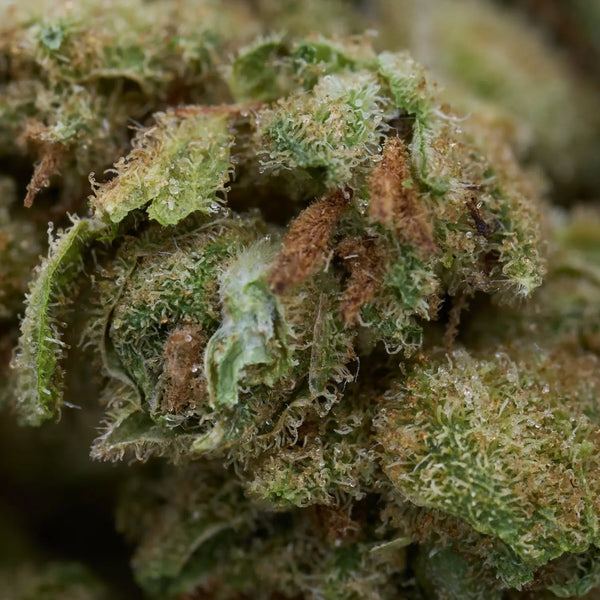
Dosing Methods and Timing
The method of THCA consumption significantly impacts both the timing and intensity of effects. Understanding these differences allows athletes to choose the most appropriate THCA milligrams athletes delivery method for their specific needs and training schedules.
Sublingual Tinctures
Sublingual administration offers the fastest onset time and most precise dosing control, making it ideal for athletes who need predictable timing.
Fastest Absorption (15-45 minutes)
- Peak effects typically occur within 1-2 hours
- Total duration: 4-6 hours
- Ideal for pre-workout or competition use
Easy Dose Adjustment
- Precise measurement with graduated droppers
- Ability to make small dose adjustments (0.5-1mg increments)
- Immediate absorption allows for quick effect assessment
Best for Precise Timing
- Competition day protocols
- Pre-workout energy and focus
- Post-workout recovery initiation
Capsules and Edibles
Oral consumption provides longer-lasting effects but requires more planning due to delayed onset times.
Consistent Dosing
- Standardized doses eliminate guesswork
- Ideal for daily maintenance protocols
- Better for athletes who prefer routine
Slower Onset (1-2 hours)
- Requires advance planning
- Not suitable for immediate needs
- Better for consistent, baseline support
Longer Duration (6-8 hours)
- All-day recovery support
- Ideal for high-volume training days
- Suitable for overnight recovery protocols
Topical Applications
Topical THCA products provide localized effects without systemic absorption, making them ideal for targeted relief.
Localized Effects
- Direct application to problem areas
- Joint-specific relief
- Muscle-targeted recovery
No Systemic Absorption Concerns
- Minimal to no psychoactive effects
- Reduced drug testing concerns
- Can be combined with systemic dosing
Targeted Muscle/Joint Relief
- Pre-workout joint preparation
- Post-workout muscle recovery
- Chronic injury management
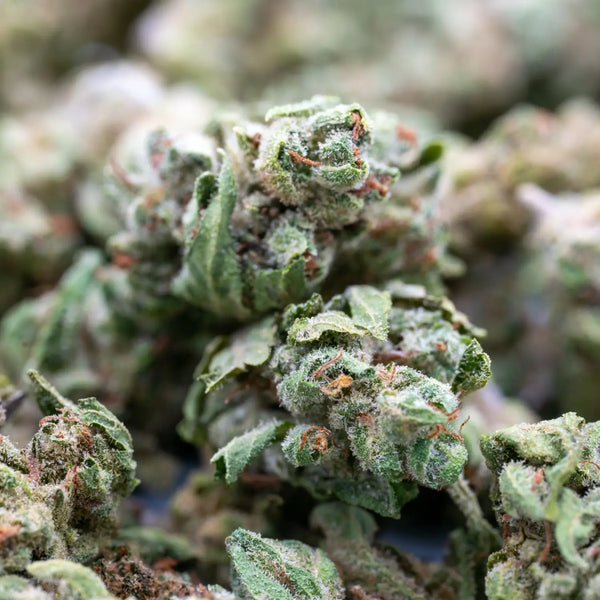
THCA Dosing Schedule for Athletes
Creating an effective THCA dosing schedule requires careful consideration of training demands, recovery needs, and individual response patterns. The following protocols can be adapted based on specific athletic requirements and personal preferences.
Daily Training Schedule
Morning (6:00 AM): 5-8mg
- Establishes baseline support
- Provides anti-inflammatory foundation
- Supports joint mobility for morning training
Pre-Workout (30-45 minutes before training): 2.5-5mg
- Enhances focus and reduces pre-training anxiety
- Provides additional joint support
- Timing allows peak effects during training
Post-Workout (within 60 minutes): 8-15mg
- Initiates recovery processes
- Combats exercise-induced inflammation
- Supports protein synthesis and muscle repair
Evening (2-3 hours before bed): 5-10mg
- Promotes sleep quality
- Supports overnight recovery
- Helps manage training-related stress
Competition Day Protocol
48-72 Hours Before Competition
- Reduce doses by 25-50%
- Focus on sleep support and anxiety management
- Avoid introducing new dosing protocols
Day of Competition
- Minimal or no dosing based on sport regulations
- Consider topical applications only
- Have contingency plans for unexpected schedule changes
Post-Competition Recovery
- Resume normal dosing within 24-48 hours
- May temporarily increase doses for enhanced recovery
- Monitor for any changes in response patterns
Timing Strategies for Optimal Results
Understanding THCA dose timing athletes can optimize effectiveness while minimizing any potential negative impacts on performance or recovery.
Pre-Training Considerations
Timing: 30-60 minutes before training Dose Range: 2.5-8mg depending on training intensity Benefits: Enhanced focus, reduced anxiety, joint mobility support Considerations: Avoid higher doses that might impact reaction time
Post-Training Optimization
Timing: Within 60 minutes post-exercise (optimal window) Dose Range: 8-20mg depending on training volume and intensity Benefits: Inflammation reduction, enhanced recovery, improved sleep quality Considerations: Combine with proper nutrition and hydration
Sleep and Recovery Windows
Evening Dose Timing: 2-3 hours before intended bedtime Optimal Range: 5-15mg depending on individual sleep needs Benefits: Improved sleep quality, enhanced recovery, stress reduction Considerations: Individual sensitivity varies significantly
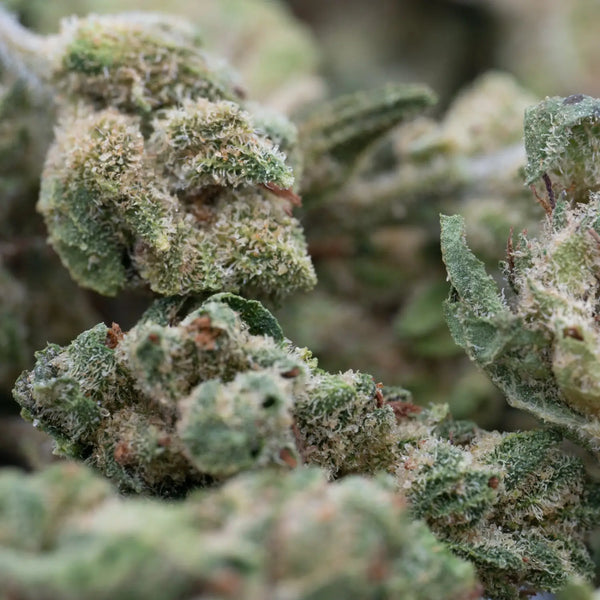
Safety Guidelines and Best Practices
Implementing proper safety protocols is essential when incorporating THCA into your athletic routine. Following these professional athlete THCA dose safety guidelines helps ensure both short-term effectiveness and long-term health.
Start Low, Go Slow Protocol
This fundamental principle cannot be overstated in importance. Beginning with minimal doses allows your body to adapt gradually while providing valuable feedback about individual sensitivity and optimal dosing ranges.
- Begin with 2.5mg regardless of body weight or experience
- Increase by 1-2.5mg every 3-5 days maximum
- Document all effects, both positive and negative
- Resist the urge to increase doses rapidly
Comprehensive Effect Monitoring
Maintaining detailed logs provides invaluable data for optimizing your dosing protocol and identifying potential issues before they become problematic.
Training Performance Metrics:
- Strength measurements
- Endurance benchmarks
- Recovery time between sessions
- Sleep quality ratings (1-10 scale)
- Morning readiness assessments
Physical Wellness Indicators:
- Joint pain and stiffness levels
- Muscle soreness duration and intensity
- Appetite and digestion patterns
- Energy levels throughout the day
- Mood and motivation assessments
Tolerance Prevention Strategies
Preventing tolerance ensures long-term effectiveness while maintaining sensitivity to THCA's benefits.
Periodic Breaks:
- Schedule 5-7 day breaks every 6-8 weeks
- Reduce doses by 50% for one week monthly
- Monitor how quickly normal sensitivity returns
Dose Cycling:
- Alternate between higher and lower dose periods
- Adjust based on training periodization
- Consider seasonal variations in dosing needs
Professional Healthcare Guidance
Working with knowledgeable healthcare providers ensures safety and optimizes results while addressing any potential health interactions.
Initial Consultation Requirements:
- Comprehensive medical history review
- Current medication and supplement assessment
- Discussion of athletic goals and competition schedules
- Baseline health marker establishment
Ongoing Monitoring:
- Regular check-ins every 3-6 months
- Blood work assessment if using higher doses
- Psychological wellness evaluations
- Performance metric reviews
Quality Assurance and Product Selection
Choosing high-quality, consistently tested products is crucial for both safety and effectiveness.
Third-Party Testing Requirements:
- Certificate of analysis (COA) verification
- Potency testing confirmation
- Contaminant screening (pesticides, heavy metals, residual solvents)
- Batch consistency tracking
Reputable Source Selection:
- Established companies with transparent practices
- Good manufacturing practices (GMP) certification
- Clear labeling and dosing instructions
- Responsive customer service and support
Warning Signs and When to Adjust
Recognizing when to modify your THCA protocol is crucial for maintaining both safety and effectiveness. These red flags indicate the need for immediate dose reduction or discontinuation.
Physical Warning Signs
Persistent Fatigue or Drowsiness:
- Lasting more than 2-3 days
- Interfering with training performance
- Not resolved with adequate rest
Digestive Issues:
- Nausea or stomach upset
- Changes in appetite lasting more than a week
- Digestive irregularities
Performance Decrements:
- Reduced strength or endurance
- Slower recovery times
- Decreased motivation or focus
Psychological Indicators
Mood Changes:
- Increased anxiety or depression
- Mood swings or irritability
- Changes in social behavior
Cognitive Effects:
- Memory or concentration issues
- Difficulty making decisions
- Reduced mental clarity
Immediate Action Steps
Dose Reduction Protocol:
- Immediately reduce dose by 50%
- Monitor symptoms for 3-5 days
- Consider complete cessation if symptoms persist
- Consult healthcare provider if needed
Documentation Requirements:
- Record all symptoms and their duration
- Note any potential contributing factors
- Track improvement or worsening
- Share information with healthcare providers
Drug Testing Considerations for Athletes
Understanding drug testing implications is crucial for competitive athletes considering THCA supplementation. While THCA itself may not be directly tested for, metabolites and cross-contamination concerns require careful consideration.
Understanding Your Sport's Policies
Regulatory Body Research:
- WADA (World Anti-Doping Agency) guidelines
- NCAA regulations for collegiate athletes
- Professional league specific policies
- State and local competition rules
Current Status Understanding:
- THCA's legal status vs. testing policies
- Distinction between hemp-derived and marijuana-derived products
- Understanding detection thresholds and methods
Detection Windows and Timing
Factors Affecting Detection:
- Dose amount and frequency
- Individual metabolism rates
- Body composition effects
- Hydration and exercise impacts
General Timeline Considerations:
- Single use: 1-3 days possible detection
- Regular use: 1-2 weeks possible detection
- Heavy use: Up to 30 days possible detection
- Individual variation can be significant
Risk Mitigation Strategies
Competition Preparation:
- Cease use 30+ days before tested events
- Consider hair follicle testing timelines (90+ days)
- Maintain detailed usage logs
- Understand emergency testing protocols
Product Selection Criteria:
- Third-party tested for THC contamination
- Broad-spectrum or isolate products preferred
- Avoid full-spectrum products if testing is a concern
- Maintain certificates of analysis for all products used
Frequently Asked Questions
How long does it take to find the right THCA dose?
Finding your optimal dose typically takes 4-8 weeks of consistent use and careful monitoring. Individual factors such as metabolism, body composition, and training demands all influence this timeline. Start with low doses and make small adjustments every 3-5 days while carefully documenting effects.
Can I take THCA with other supplements?
THCA generally combines well with most athletic supplements, but interactions are possible with certain medications. Always consult with a healthcare provider before combining THCA with prescription medications, especially blood thinners or medications that affect liver enzymes. Common supplement combinations that are generally well-tolerated include protein powders, creatine, and most vitamins.
Should I take THCA every day or only on training days?
Consistent daily dosing often provides better results than sporadic use, as it maintains steady levels in your system and supports ongoing recovery processes. However, some athletes prefer to use THCA only on high-intensity training days or during particularly stressful training blocks. The best approach depends on your individual goals and response patterns.
What's the difference between morning and evening doses?
Morning doses typically provide baseline support and may help with joint stiffness and training preparation. Evening doses are often more effective for recovery, sleep quality, and managing training-related stress. Many athletes find split dosing (smaller amounts morning and evening) provides optimal 24-hour support.
How do I know if my dose is too high?
Signs of excessive dosing include persistent fatigue, drowsiness that interferes with training, digestive upset, mood changes, or any decrease in athletic performance. If you experience any of these symptoms, immediately reduce your dose by 50% and monitor for improvement over 3-5 days.
Conclusion
Developing an effective THCA dosing strategy requires patience, careful monitoring, and a willingness to adjust based on individual response patterns. The wide range of factors affecting optimal dosing—from body composition and training demands to individual sensitivity and sport-specific requirements—means that what works for one athlete may not be suitable for another.
The key principles for successful THCA integration include starting with conservative doses, maintaining detailed effect logs, working with knowledgeable healthcare providers, and prioritizing product quality and safety. Remember that more is not always better, and finding your minimum effective dose often provides the best balance of benefits and safety.
As research continues to evolve and our understanding of THCA's effects on athletic performance deepens, dosing recommendations may be refined. Stay informed about the latest research, maintain open communication with your healthcare team, and be prepared to adjust your protocol as needed.
Most importantly, remember that THCA is just one tool in a comprehensive approach to athletic performance and recovery. Proper nutrition, adequate sleep, appropriate training load management, and stress reduction remain the foundation of athletic success. When used thoughtfully and safely, THCA can complement these fundamental practices and support your journey toward optimal athletic performance.
For athletes ready to explore THCA supplementation, begin with the conservative dosing recommendations outlined in this guide, maintain detailed records of your response, and don't hesitate to seek professional guidance when needed. With careful attention to safety and individual response patterns, THCA can become a valuable addition to your athletic toolkit.
Always consult with qualified healthcare providers before beginning any new supplement regimen, especially if you have pre-existing health conditions or take medications. This guide provides general information and should not replace personalized medical advice.

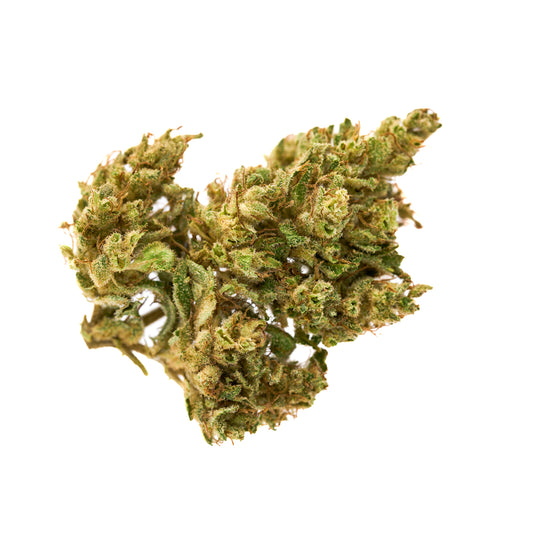
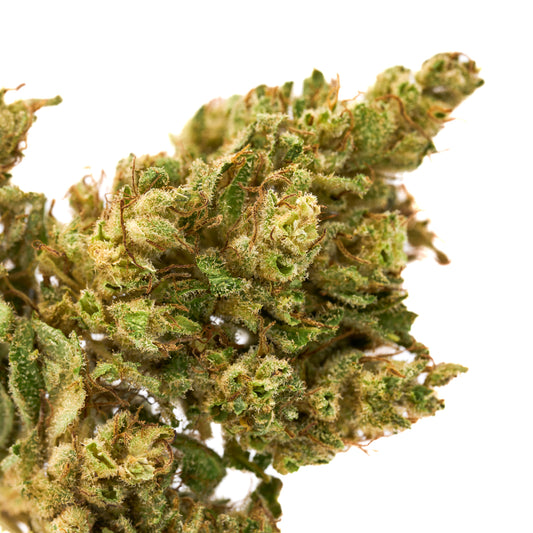
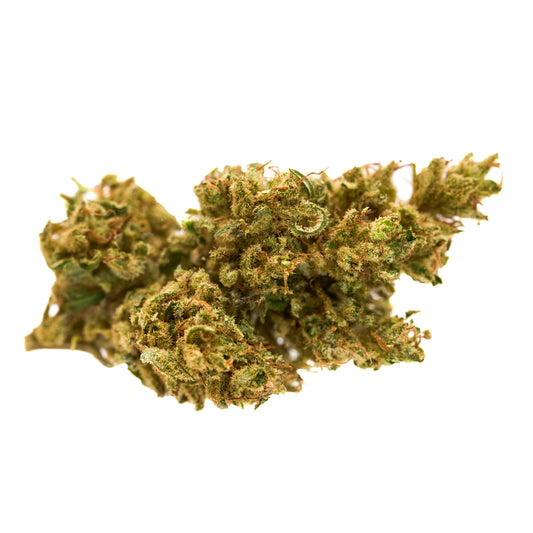
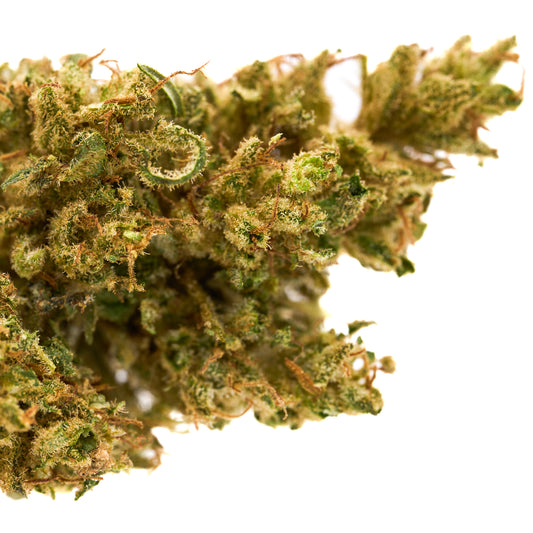
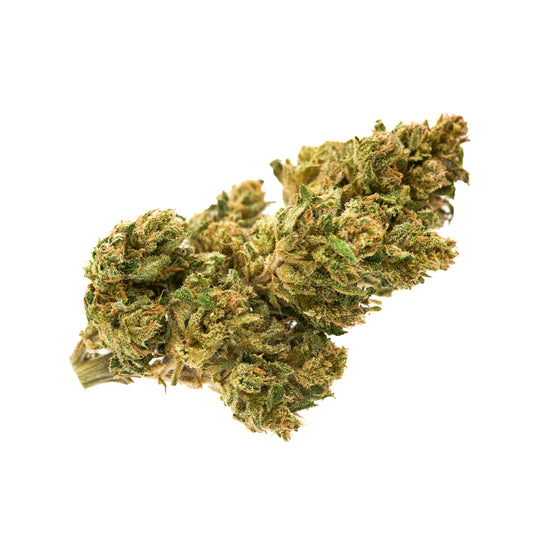
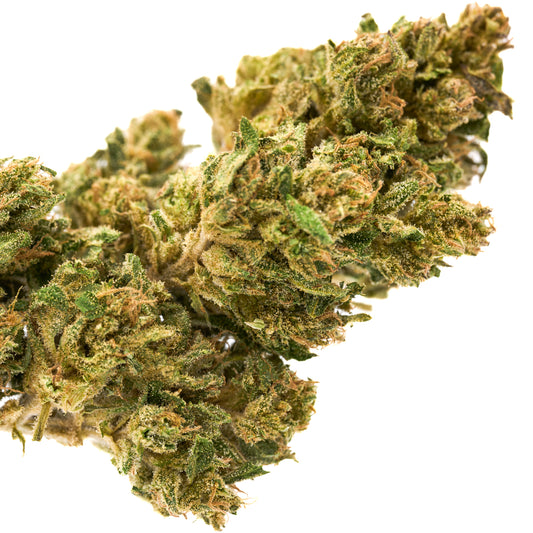



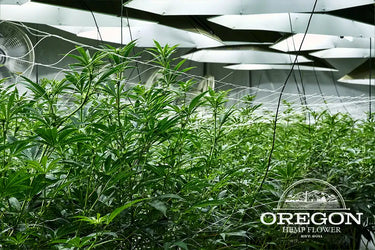

Leave a comment
Please note, comments need to be approved before they are published.